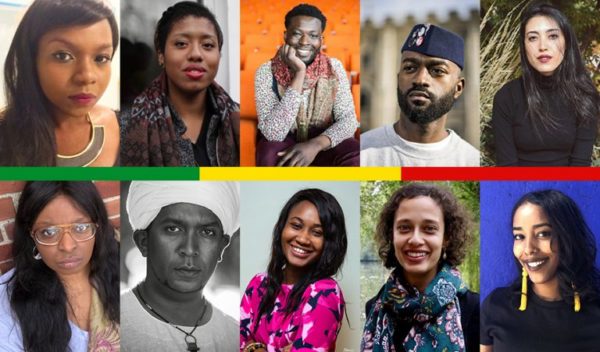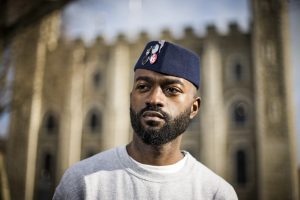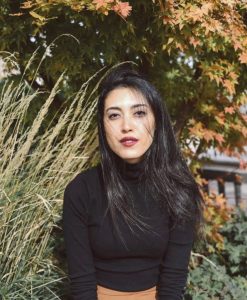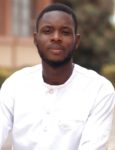
In 2018, Brittle Paper introduced a Brunel Prize Poems Review series, starting with poems on that year’s shortlist. The series returns for the 2019 Prize.
READ: Brunel Prize 2019 Poems Review | Part 1: Jamila Osman & Selina Nwulu
READ: Brunel Prize 2019 Poems Review | Part 2: Omotara James & K. Eltinae
READ: Brunel Prize 2019 Poems Review | Part 3: Afua Ansong & Mary-Alice Daniel
READ: Brunel Prize 2019 Poems Review | Part 4: Emmanuel Oppong & Sherry Shenoda
The 2019 Brunel International African Poetry Prize shortlist came with ten poets, most of whose works are truly worthy of the career-making prize. Through varying styles and themes, all the poems have one thing in common: a determination to speak the truths of their realities, which is what good poetry should do. These poems are strong. However, whether they represent the high quality of contemporary poetry by Africans is another question entirely. In fact, a strong argument could be made about subsequent shortlists failing to match that of the 2017 Prize.
Looking at the finalists, one would be forgiven for assuming that the 2019 prize was open only to Africans in the diaspora. It also makes us wonder if there is even such an essentialist idea as “African poetry,” as almost all the poems could have been written in an African-American context. But this is not the time to dwell on that. That is a question to be asked—and, hopefully, answered—on a different day.

INUA ELLAMS
Born in Nigeria, Inua Ellams is a cross art form practitioner, a poet, playwright & performer, graphic artist & designer and founder of the Midnight Run—an international, arts-filled, night-time, playful, urban, walking experience. He is a Complete Works poet alumni and a designer at White Space Creative Agency. Across his work, Identity, Displacement & Destiny are reoccurring themes in which he also tries to mix the old with the new: traditional African storytelling with contemporary poetry, pencil with pixel, texture with vector images. His poetry is published by Flipped Eye, Akashic, AND Nine Arches, & several plays by Oberon.
“The Saxophone Player’s Mouth” | “Soldier Ants” | “Light Poem #0732”
In one of the most remarkable feats on this shortlist, Ellams takes a trip into the spiritual anatomy of an imagined song in “Saxophone Player.” The song becomes a city and the mind of every citizen is explored: every note, every beat, every labored breath amplified for filmic effect. It portrays music as a cinematic spectacle, an experimental look into how wilful synesthesia can offer new interpretations of art, beyond man-made boundaries. We are invited into an unusual musical appreciation, an architecture of sound. Like the signature improvisation found in jazz, each musician seems to go on his own path, his instrument creating its own distinct imageries. For that brief instance, the music becomes both sound and colour. In the end, they all merge into a singular photograph of the resurrected Fela Kuti.
In “Soldier/Ants,” Ellams gives a grisly portrayal of the effects of the Biafran War. Similar to an earlier poem of his, “Class Zero,” this starts slowly with the childish preoccupations of a schoolboy from whose secondhand lens we then get to view a historical tragedy. The language is vivid. However, the intent appears slouched in its supposed uprightness. The persona’s voice is all too unaffected, too detached, barely there, as though the horror being depicted is merely a pastime story. While this can be attributed to the brattish impulses of the puerile narrator, it subtracts from the agency the poem could have had on its own without relying on the reader’s inherent empathy for effect.
“Light” is an existential quest for the purity of inner light, uncontaminated by the overtly mechanised materiality of modern technology. Envious of the nature-based simplicity of the Inuits, Ellams expresses frustration over the growing disconnect from the self. It is poignant, this search for nativity. It could also be interpreted as a quest for the clarity of identity, as a member of a race whose original forms of being were erased by colonialism and slavery; their nativity stripped away, forever cursed to assimilate into the white man’s world unlike the indigenous peoples who maintain a strong sense of self till today:
flick the switch / draw closed the blinds / unplug the
artificial for a miner’s light / a lone candle / flame
blinking in the dark / and search my native self / for
anything shimmering.

NADRA MABROUK
Nadra Mabrouk is a poet from Cairo, Egypt. She is the author of the chapbook How Things Tasted When We Were Young, published by Finishing Line Press in 2016. Her work has appeared/ is forthcoming in POETRY, RHINO, Tinderbox Poetry Journal, among others. Her work is also forthcoming in The BreakBeat Poets Vol. 3: Halal If You Hear Me (Haymarket Books, 2019). She has been recognized as a finalist for the 2017 Brett Elizabeth Jenkins Poetry Prize. Currently, she is a content intern for The Academy of American Poets, and is an MFA candidate at New York University, where she is a Goldwater fellow.
Mabrouk’s brilliance is a self-announcing thing, with luminescent lines bursting with life and colour. In “Imagined Return,” she gives us a strange vision of someone who has reappeared after a supposed leaving. This sets the stage for a lavish display of mastery—mastery of imagery, of language, of emotion. The words defy stillness, turn to ink-paint and use the page as canvas, our imaginations becoming the brushstrokes. We see it all, the flying “mockingbird feathers,” the “bloodied wing,” the “threads of cloud hanging from your eyelashes.”
The game of interpretation is also a bit complex here. While at first it could be read as the lust for the return of a loved one, the symbolisms of saviours and travelling and serrated maps lend credence to another theory entirely. It could be addressed to the White Savior Complex, the notion of the Western world hiding its imperialist longing for world conquest under the pretext of aiding non-White communities.
The poet seems to imagine the return of the coloniser in order to have a dialogue, or monologue, about false gospels of liberation and inflated imperialist ego. Invoking colonialist language and slight allusions to gentrification, one cannot help but read the poem along these lines. This could all be nothing but conjecture, of course:
In one palm, a bloodied wing, the raw syrup
of a small existence in the other settling
between the serrated map of your hand,
threads of cloud hanging from your eyelashes.
What else have you halved in this century?
Before one can begin to dissect the existential statement in the title, “Let’s Go Get Sammak” starts quickly with the action—excellent description distracting from the truth at hand. The momentary distraction soon bursts at its seams, as the third paragraph admits, “This won’t save us.” The work is a kind of drowning, a detachment from land, from home. It is a subject which has been explored many times over. Many, many times. Even on this shortlist, detachment is not a rarity. Mabrouk does not fall into redundancy, though. It is handled differently, with uniqueness.
In “Autumn,” Mabrouk says “the spine is a string of pearls.” This careful arrangement of visual metaphors is what has become the poet’s biggest strength. And she makes sure to flaunt it as much as possible. Though interspersed with such blood and gore, “Autumn” is, at its heart, a meditation on healing:
There is a kindred to healing, everyone
in a violet, ancient line, the occasional
sound of twig snapping as we move
into our desired symmetry,
the round-mouthed snap of silence.
READ: Brunel Prize 2019 Poems Review | Part 1: Jamila Osman & Selina Nwulu
READ: Brunel Prize 2019 Poems Review | Part 2: Omotara James & K. Eltinae
READ: Brunel Prize 2019 Poems Review | Part 3: Afua Ansong & Mary-Alice Daniel
READ: Brunel Prize 2019 Poems Review | Part 4: Emmanuel Oppong & Sherry Shenoda
ABOUT THE REVIEWER
 Kanyinsola Olorunnisola is a poet, essayist, and writer of fiction. He writes from Ibadan, Nigeria. His debut poetry chapbook, In My Country, We Are All Crossdressers, was released by Praxis Magazine. He is the founder of the literary movement, SPRINNG: Society for the Promotion, Revitalization, and Improvement of the New Nigerian Generation. He loves experimental literature, pop culture, and Nigerian jollof rice.
Kanyinsola Olorunnisola is a poet, essayist, and writer of fiction. He writes from Ibadan, Nigeria. His debut poetry chapbook, In My Country, We Are All Crossdressers, was released by Praxis Magazine. He is the founder of the literary movement, SPRINNG: Society for the Promotion, Revitalization, and Improvement of the New Nigerian Generation. He loves experimental literature, pop culture, and Nigerian jollof rice.








COMMENTS -
Reader Interactions